Uncertainty and Inefficiency
We are coming to the close of the third cycle of teams working onsite at Countway and the 20th week of remote work. As a library, we have managed to do more than just survive. In fact, Countway Library has managed to thrive. This shines through on the Voices of the Community video we produced last week, and from the many success stories from remote and onsite work you continue to send me. We are able to provide many Evidence-Based e-resources, reference consultations, instructional programs, and access to the special collections and print collections our community needs for their work and study. All this, along with the renovation project, which continues to make progress with a projected completion date for inside work to occur around the holidays.
There are two themes that come to mind when I look back at the last several weeks of remote and onsite work. First is that at Countway, we continue to work and adapt in uncertain times. We are learning to tolerate ambiguity, some of us more readily than others, but we are getting there. Since March 17, our workspace and workday changed without warning. On top of that, our personal lives were also upended with the addition of our new work at home schedules. No aspect of human existence has been untouched. Yet, we find a way to plug along. When we come into our workplace, we see a space constantly under change. We are in a building under construction. We have a number of new workplace safety protocols and procedures we all must follow. No longer can we make our own schedules and our own routines. Yet we have adapted and found new ways to work. And through our teams and social honoring we have found ways to use technology to connect.
Second, while we may be providing library resources and services, we recognize we may not be doing so in the most efficient manner. I am here to tell you--it is OK. We have learned to accept the inefficiencies such as workarounds and a shorter onsite workday, these still allow us to make considerable progress despite taking longer or using more people to accomplish a task. We may need to leave books in quarantine for 24 to 72 hours. Or we may need more handoffs as in the BML project because of social distancing in the stacks. Despite these inefficiencies, we have been and continue to be quite effective. We recognize that we are not living and working in normal times. And sometimes, the way we do things now in the library doesn’t always make logical sense - but they work. We have learned to be flexible, adapt work processes, and accept the inefficiencies and sometimes do things that are illogical or not the way we were taught in the past. But they work. So we go for it!
Adapting to Uncertainty
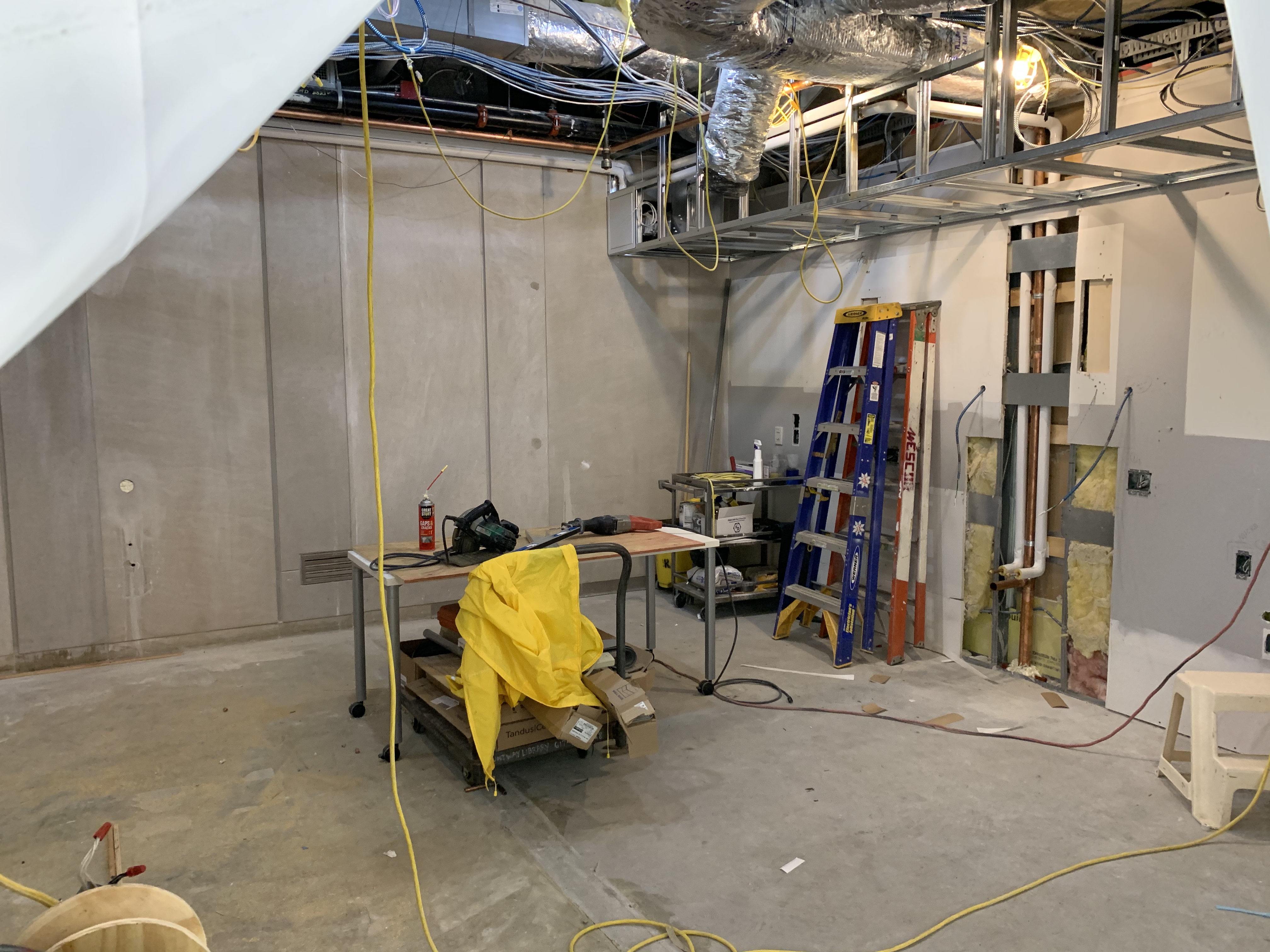
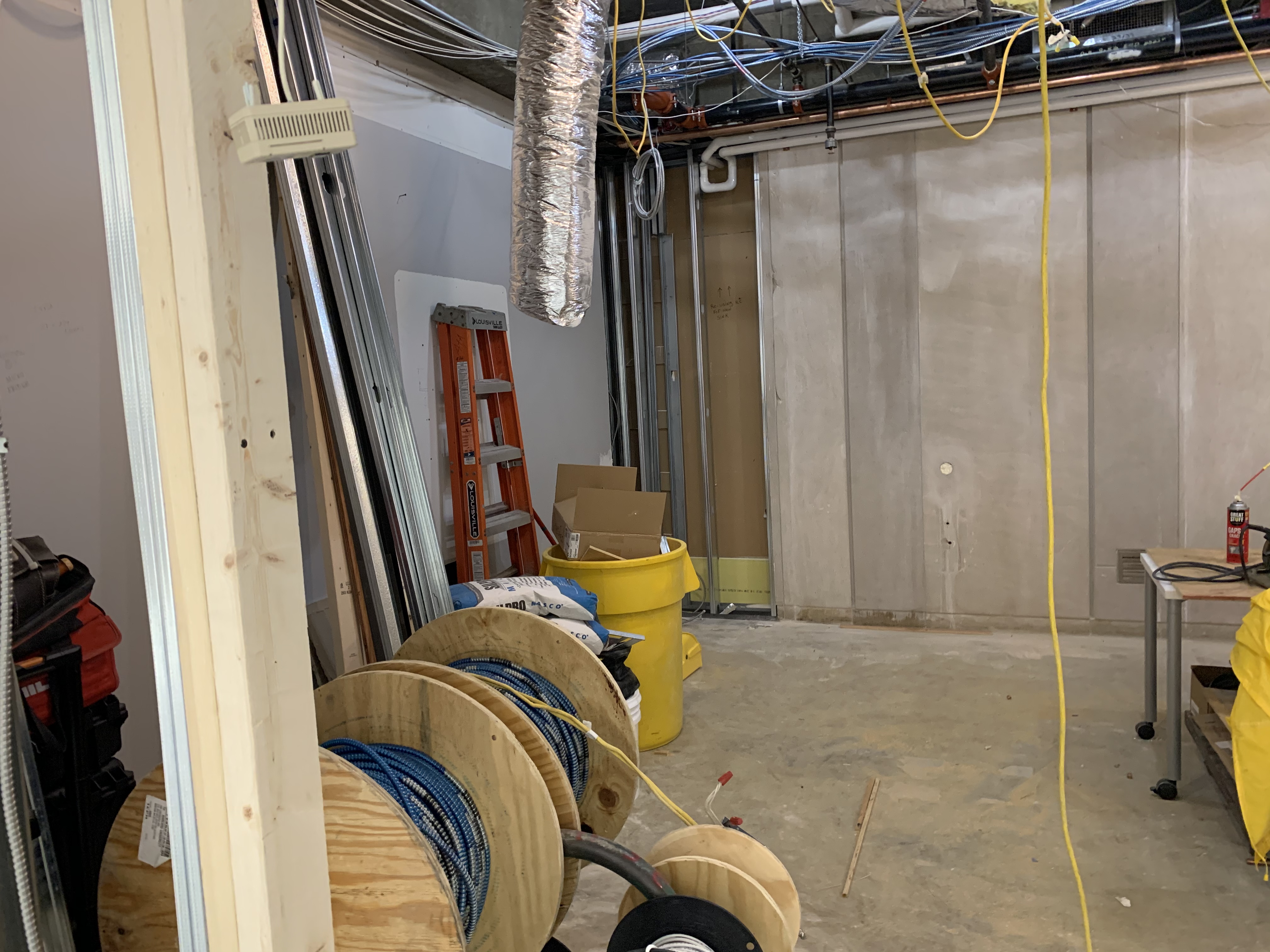
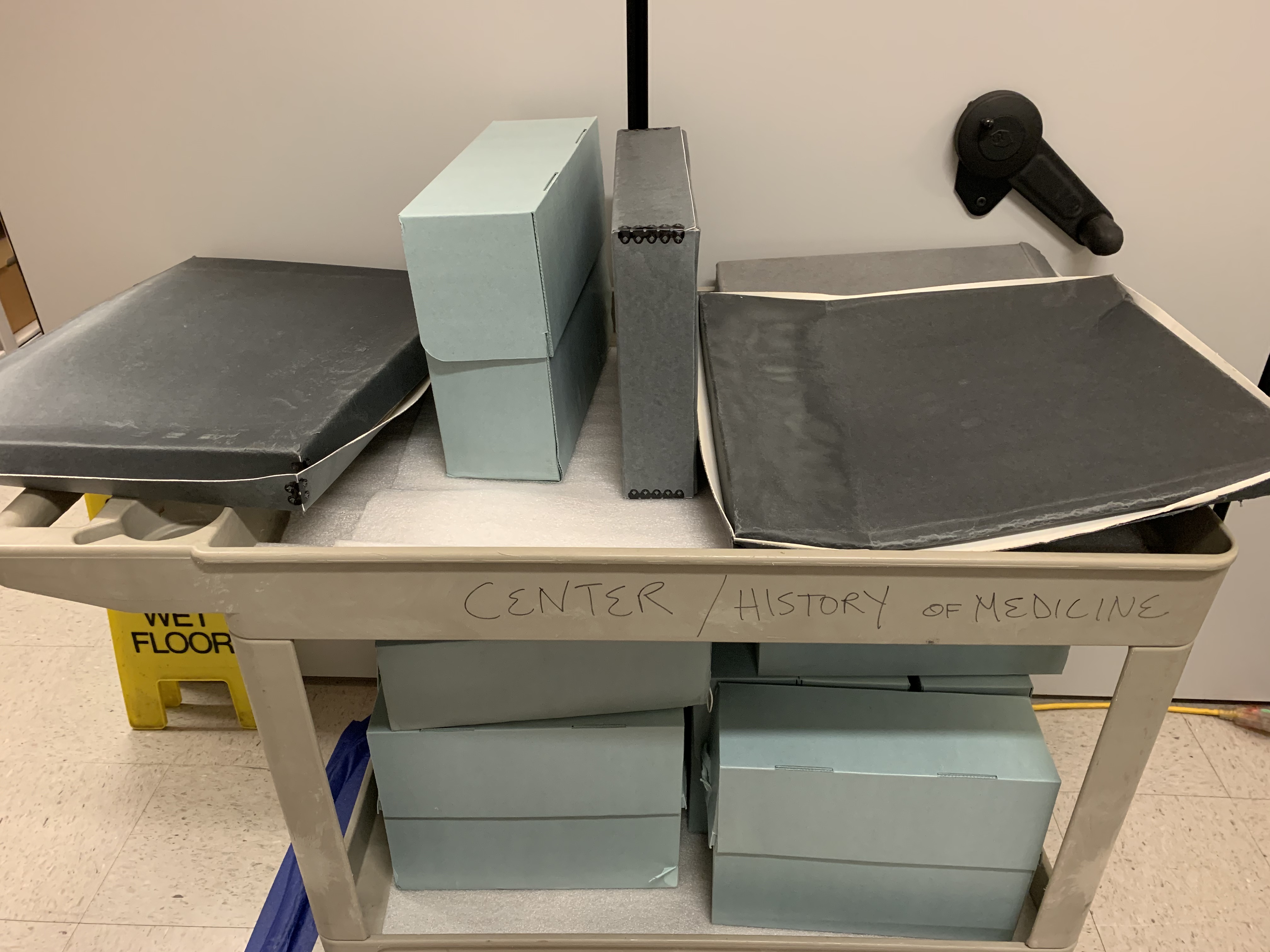
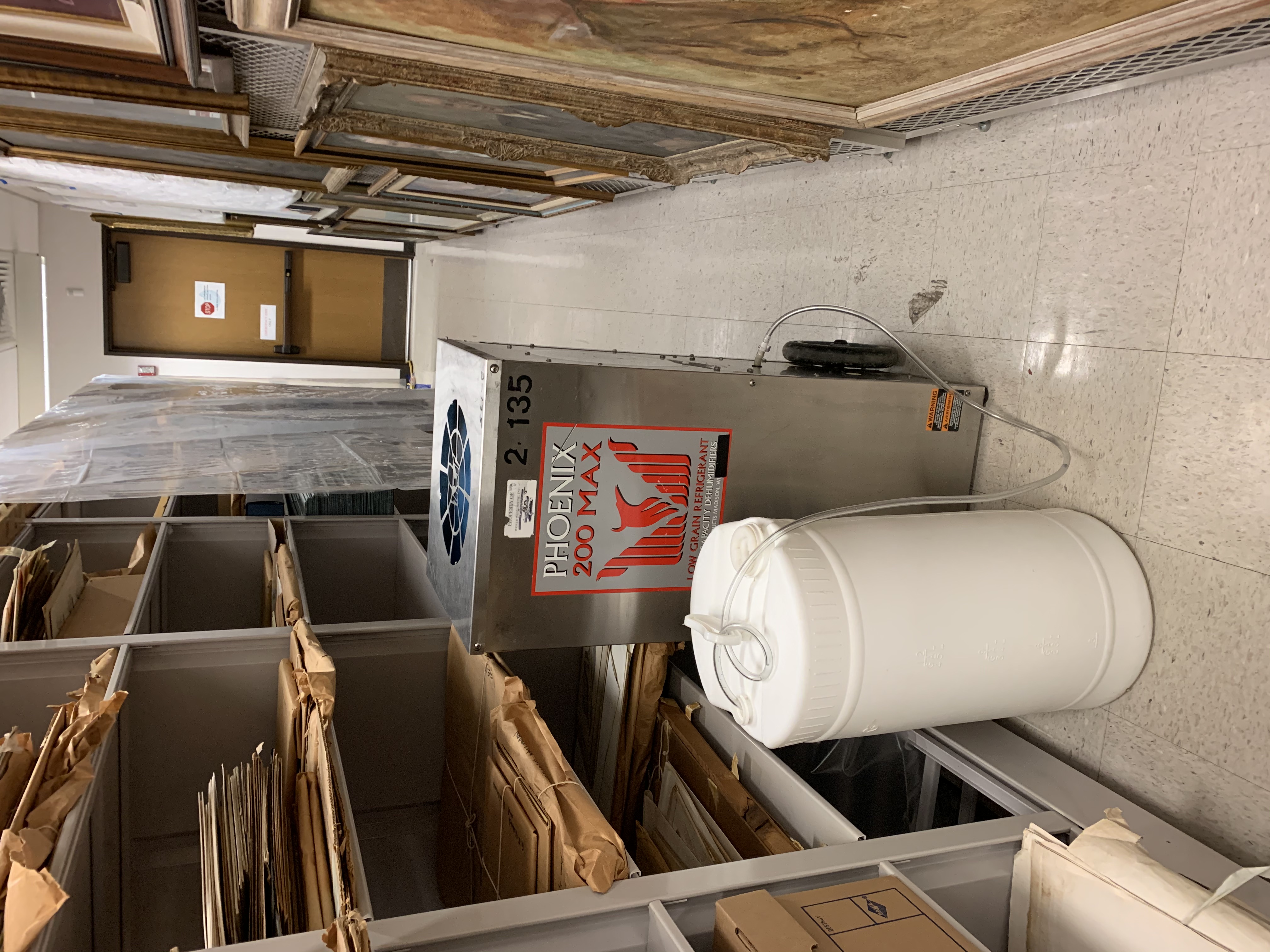
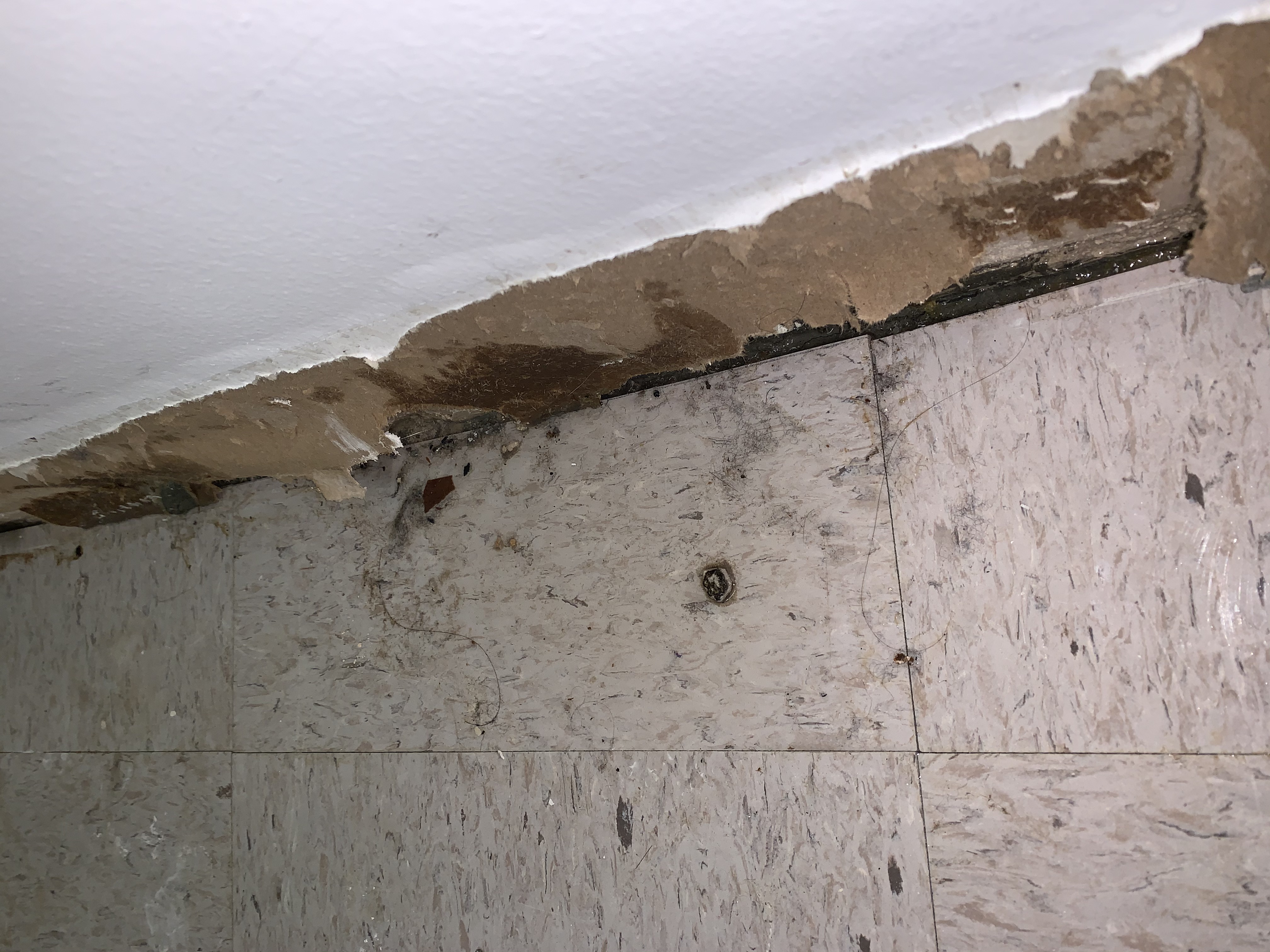
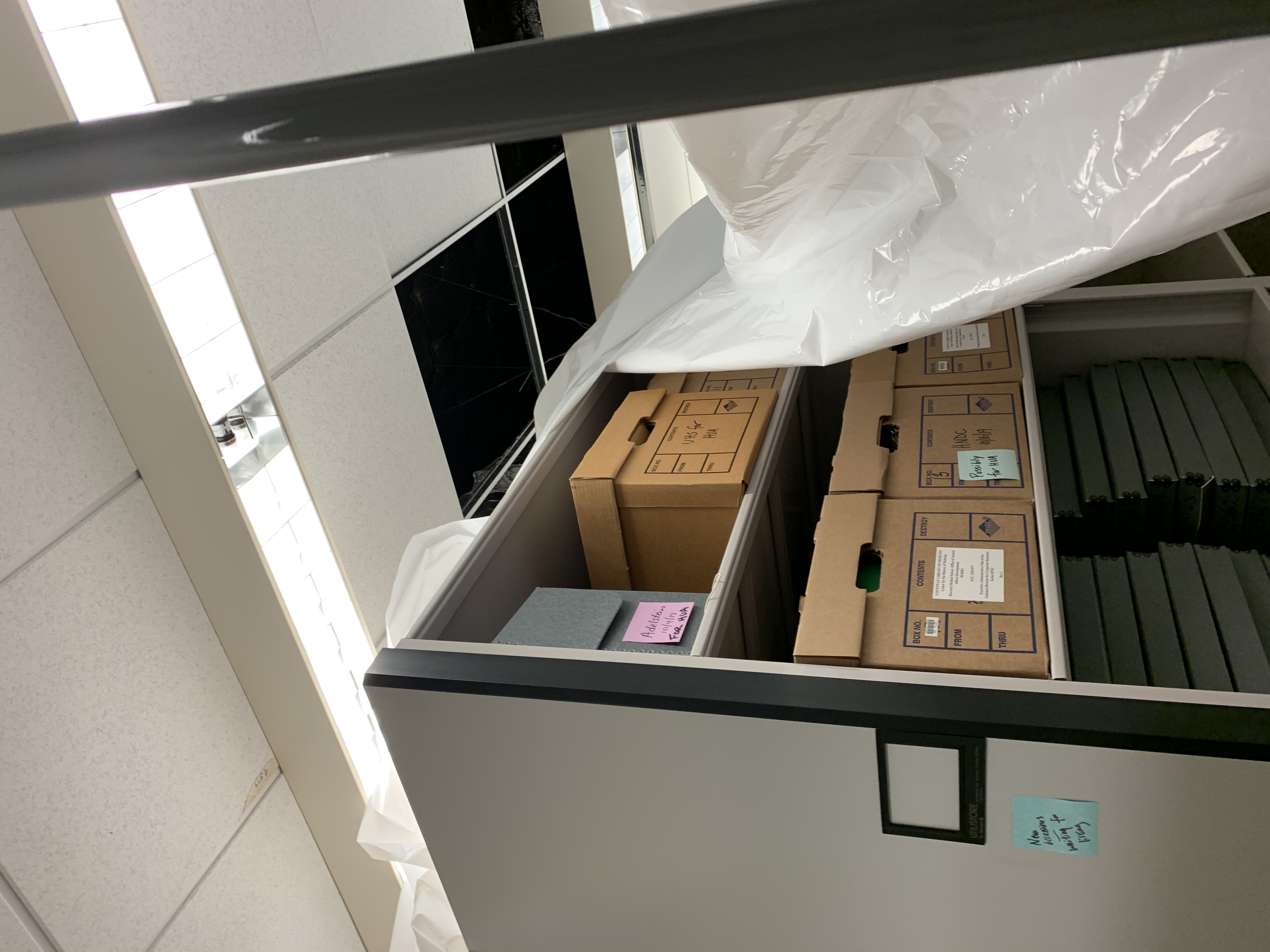
This section gets filed under “you never know what’s going to happen in a building when it is not fully occupied and under construction.” Talk about uncertainty. During the past months, we have had two leaks in the building. The first was the kitchen. Water leaked into newly renovated offices and led to a clean up of the administrative area. However, good things can happen as a result of unfortunate circumstances-or maybe better yet, making lemonade out of lemons. Because of the flood, our kitchen remodel, which was originally a separate project slated to be completed at the end of construction, is now moved up and this space will be ready by September.
The next unexpected event was the water damage sustained in a small section of CHOM last week during the big rain storm. It turned out however, that this was due to an error in the four holes that were cored to rewire the generator installed by a contractor hired by our construction company (Lee Kennedy) while preparing for outside work to create a handicapped ramp near the garden. Luckily, HMS building services found the leak quickly and the construction company and HMS building services responded immediately and continues to rectify the problem. Emily was notified right away and Jess Murphy was called in for emergency work to identify potential problem areas and to put a plan in place for protecting collections. Lee Kennedy has accepted responsibility and will take corrective action. In addition, there will be more regular walkthroughs of the area during the remainder of the construction period. CHOM staff are no strangers to water damage and the emergency plan they have in place was tested and worked.
It May not Be Efficient but Certainly Effective
Inventory Project
We are in the stacks in limited numbers. We have sandwich boards that separate us. We get assigned areas to work and get flash drives to store data on. Efficient? Maybe not. Effective? Definitely. Since reopening, we have inventoried 3,732 monographs and 619 serial titles. Also, Q in the serials is complete as is A-P for the L1 books. And again, inefficiencies. This piece of the L1 book inventory could already be done but we needed to skip a section to avoid needed electrical work taking place in those aisles; so priorities have shifted to serials - S and Z..
Grab and Go
While it might be more efficient to have patrons come into the library and find their own materials from the stacks, building density and construction prevent this scenario at this time. So, we now have a grab and go service where patrons can fill out an online form to request an item from the physical collection. Staff pull the requests from the system, go into the stacks, pull the items off the shelf, and prepare them for pick up at the security station at the C Link. In the future, when we are open, we plan to have a locker system across from the circulation desk in L1. Items requested by patrons will be placed in the hold lockers and individuals will be able to pick them up at their convenience. We have already had two requests successfully filled for grab and go this week.
Welcome to the New Normal: It may not look organized but it works
Many of us are attracted to library work because it is founded on rules, organization, logical step-by-step processes and ordering systems. Likewise, our libraries, usually faced with ongoing budget cuts and threats of downsizing, have continually embraced the latest institutional efforts for efficiency management such as re-engineering, total quality management, LEAN, and every other efficiency management flavors of the month. It is unnatural for us to do our work in ways we may perceive as not streamlined.
In the pandemic world, the rules of order, sequence, organizational systems, and efficient workflows have been disrupted, for several months and for the foreseeable future. Working within health and safety protocols which require fewer, smaller working teams can make things take longer to accomplish a task and adds uncertainty to the new ways we work. At the same time, this is an opportunity to rethink the way we work. And maybe some of the workflows we put in place as stop-gap or temporary measures may become regular services post-pandemic. What holds true is that we will constantly be reevaluating and changing how we work and safely meet the information needs of our community. Welcome to the new normal.
Elaine